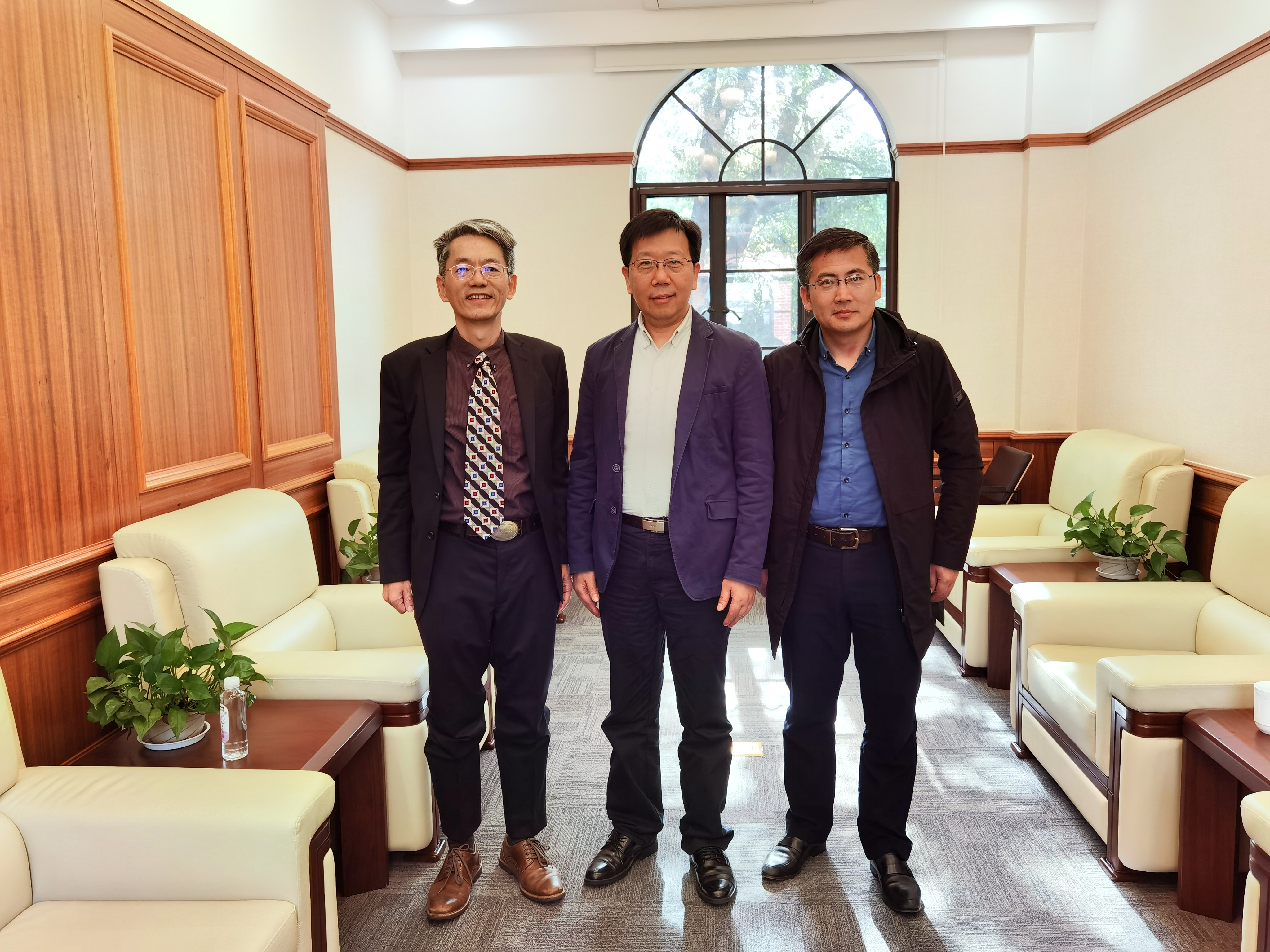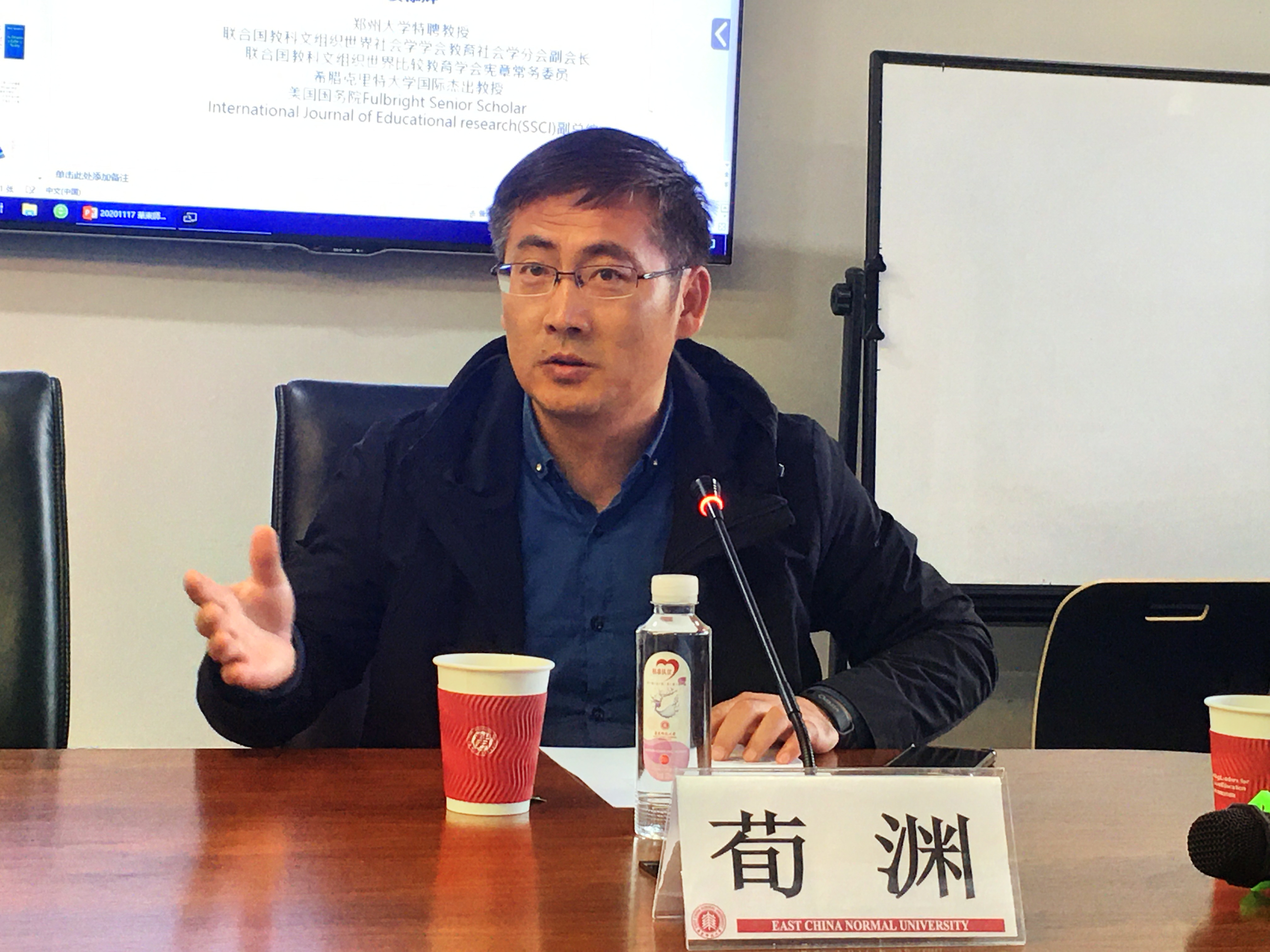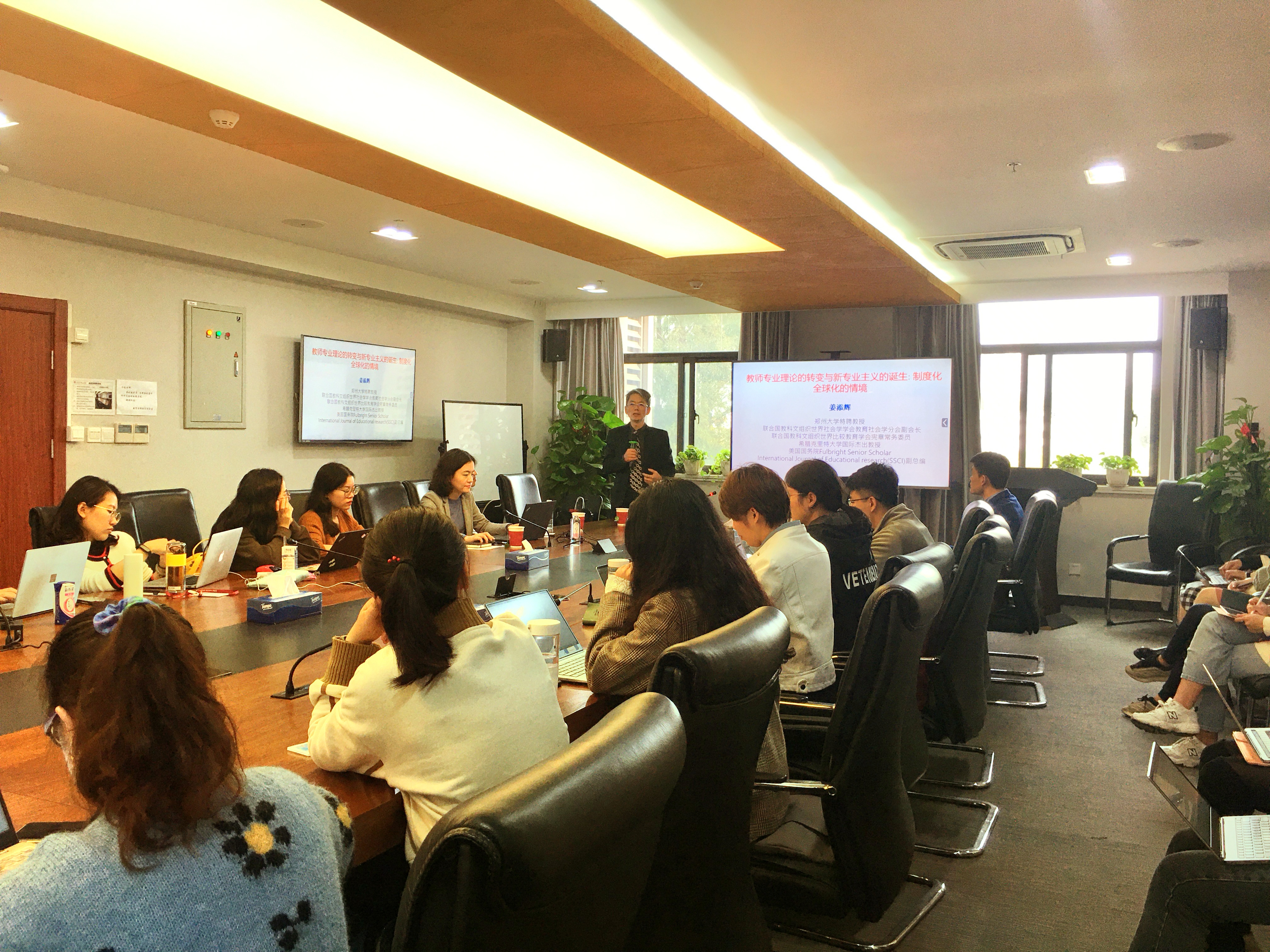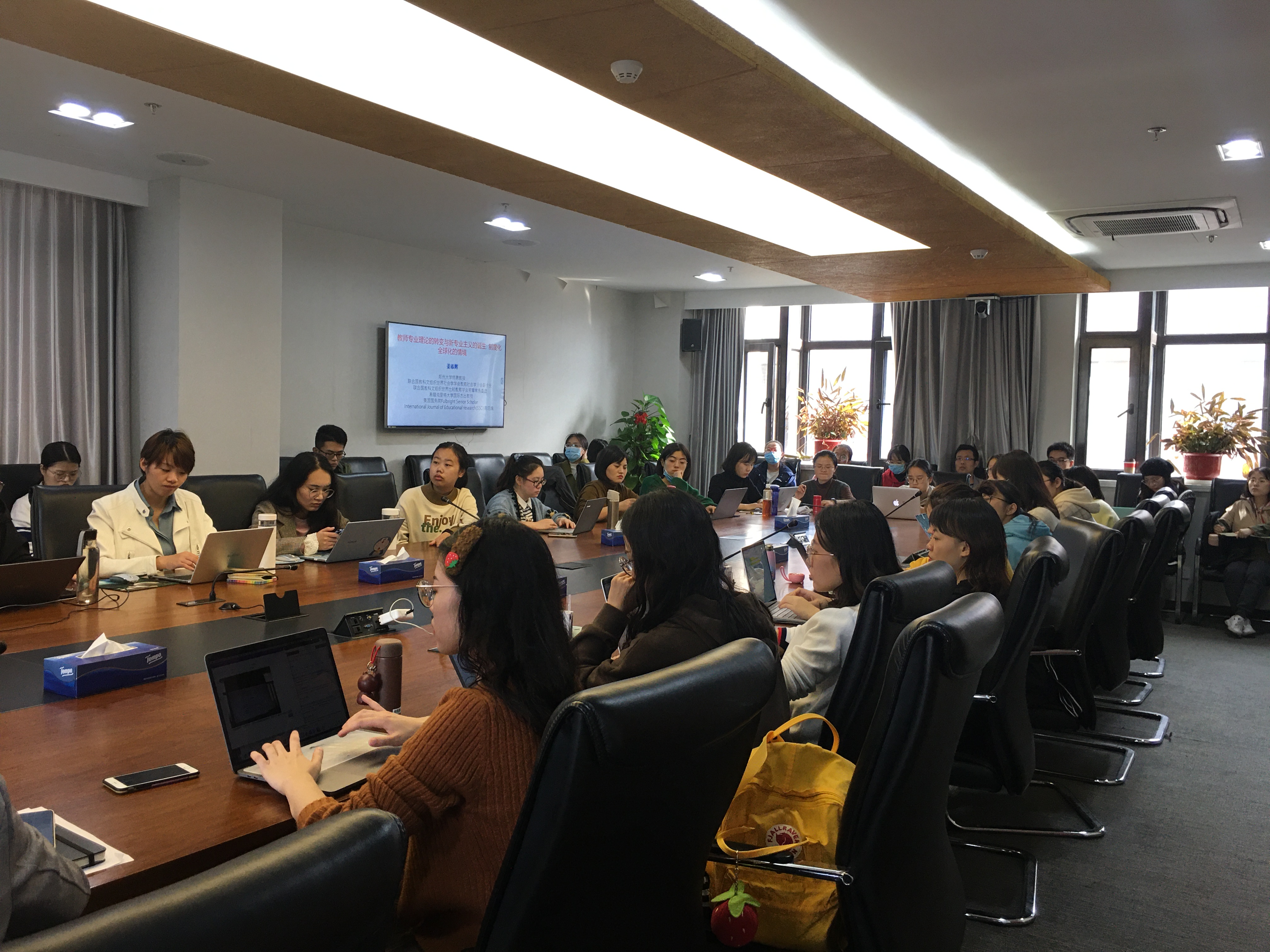

On November 17, 2020, Professor Chiang Tien-hui, a renowned Taiwan scholar, Vice President of the Educational Sociology Branch of the World Sociology Institute of Sociology, UNESCO, Permanent Member of the Charter of the World Institute for Comparative Education, UNESCO, was invited to visit the Faculty of Education. ECNU President Qian Xuhong met with the guest at Zhongbei Campus, accompanied by Xun Yuan, Executive Deputy Director of the Faculty of Education, and Qiu Yue, Director of the International Affairs Division. During the meeting, President Qian Xuhong warmly welcomed Professor Chiang Tien-hui’s visit and introduced the recent development of ECNU. The two sides had an in-depth exchange on international higher education research, liberal education courses, research scholars’ competency and cross-strait academic exchanges and cooperation.

Professor Chiang Tien-hui was invited to give a lecture on “The Transformation of Teacher Professional Theory and the Birth of New Professionalism: The Context of Institutionalization and Globalization”, which hosted by Professor Xun Yuan. The lecture attracted nearly 50 graduate students from all schools, departments and institutes of the Faculty of Education.


Using professionalism of structure-functionalism and professionalization of interactionism as a preface, Prof. Chiang introduced Mead’s concepts of Mind,Self and Society, Durkheim’s “Division of Labour in Society” theory and Goffman’s dramaturgical theory to analyze the relationship between individual “professionalism” and social needs, the relationship between continuous professionalization and teachers’ professional status, and the relationship between teachers’ professionalization and the country’s international competitiveness.
He also highlighted the background of the neoliberal wave and the globalization of capital in the last century, and analyzed the concept of “human capital,” arguing that the export of the belief in “human capital” has stimulated the demand for human resources in the competition for dominant positions in the globalized economic system, and school education is the delivery system of high-end talents. As a result, globalization, international competitiveness, human capital, and higher education have a linear link. The expansion of higher education is essentially a product of “social discourse”, and individuals are internalized under the influence of social values and become practitioners of self-governance. Therefore, the shift of the teacher profession from individualization to collective tasks reflects the changes in the social context.

Professor Chiang also pointed out that not all the results are negative, and elaborated on the positive benefits of teacher professional development in terms of the knowledge economy and the ability to innovate. He explained that one of the main characteristics of globalization is the knowledge economy, where productivity is no longer determined by capital, technology, etc., but by the ability to innovate; in addition, advanced network technology has made commodity information more synchronized and transparent; and consumers’ economic conditions have changed from “Fordism” to “Post-Fordism”. In other words, consumption is not determined by price, but by personal preference.
Finally, Prof. Chiang concluded that the correlation between the globalization system and the change of educational goals and connotations highlights that the context often influences the action space, and the individual will also reflects the attributes or requirements of the context. The underlying factor in the shift from professional trait theory to interaction theory of teachers’ professional content is the researcher’s insight into the pull of social context, and social function as the main axis of social context.

At the end of the lecture, the attendees had a heated discussion and view exchanges with Prof. Chiang on “innovation” and “creativity”, etc. Professor Xun Yuan summarized the discussion and expressed his gratitude to Professor Chiang for his sociological interpretation of the changes and meanings of “professionalism” of teachers.
During the visit, Prof. Chiang also visited the Department of Education, and the Institute of Schooling Reform and Development of the Faculty of Education, as well as the ECNU Journal (Educational Sciences), and had discussions with professors and students.